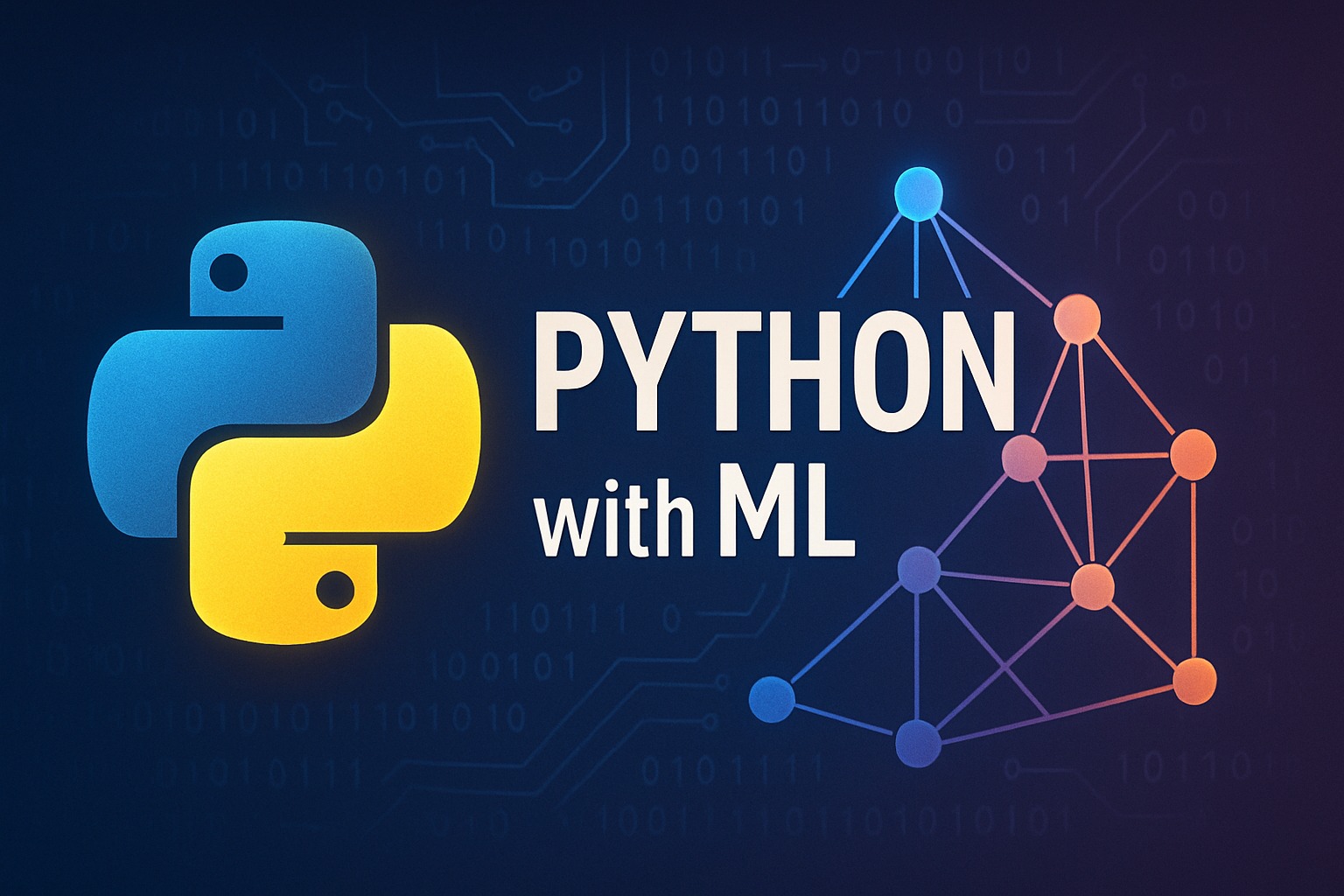
About Course
A Python machine learning course typically covers a range of topics, tools, and libraries essential for building and evaluating models. Here’s an outline that can provide a good foundation:
- Introduction to Machine Learning
- Basics of machine learning, types (supervised, unsupervised, semi-supervised, reinforcement)
- Real-world applications and scope
- Python for Data Science
- Essential libraries: NumPy, pandas, Matplotlib, and Seaborn
- Data preprocessing: handling missing data, encoding categorical variables, scaling, normalization
- Exploratory Data Analysis (EDA)
- Supervised Learning
- Regression Models: Linear regression, polynomial regression
- Classification Models: Logistic regression, k-Nearest Neighbors (KNN), Support Vector Machine (SVM), Decision Trees, Random Forests
- Model evaluation techniques: accuracy, precision, recall, F1-score, confusion matrix
- Unsupervised Learning
- Clustering techniques: k-means, hierarchical clustering, DBSCAN
- Dimensionality Reduction: PCA (Principal Component Analysis), t-SNE
- Semi-Supervised Learning
- Introduction to semi-supervised methods (e.g., Label Propagation, Label Spreading)
- Applications in partially labeled datasets
- Reinforcement Learning (Basics)
- Introduction to Q-Learning, policy gradients, and basic concepts of rewards and penalties
- Tools: OpenAI Gym for simulated environments
- Neural Networks and Deep Learning
- Overview of neural networks and deep learning
- Building simple neural networks using libraries like TensorFlow or Keras
- Convolutional Neural Networks (CNNs) and Recurrent Neural Networks (RNNs) basics
- Natural Language Processing (NLP)
- Text preprocessing, tokenization, stop words, stemming, lemmatization
- Bag-of-words, TF-IDF, and Word Embeddings (e.g., Word2Vec, GloVe)
- Sentiment analysis, basic text classification
- Model Deployment
- Deploying machine learning models using Flask, FastAPI, or Streamlit
- Model monitoring and version control
- Capstone Project
A comprehensive project involving end-to-end model building, deployment, and documentation
Course Content
Python Foundations for Data Science
-
Python Basics: Syntax, data types, operators, control flow, functions, and classes
-
Data Structures: Lists, dictionaries, sets, and tuples
-
File Handling: Reading and writing files (CSV, JSON)
-
Working with Libraries: Introduction to NumPy, pandas for data manipulation
-
Data Visualization: Basic plotting with Matplotlib and Seaborn
